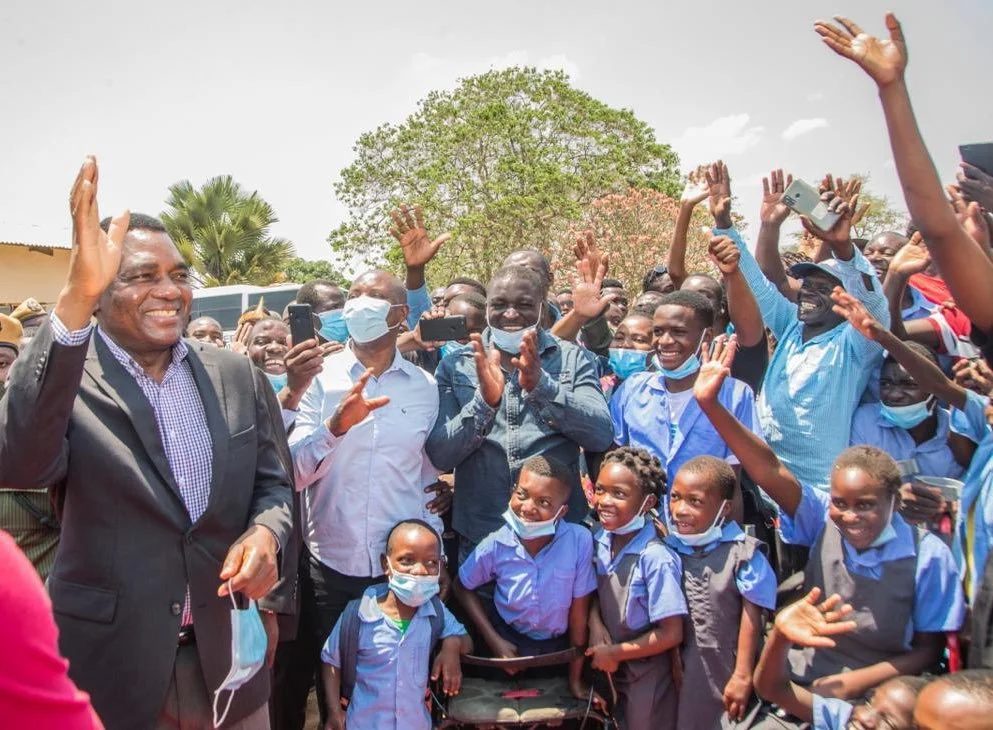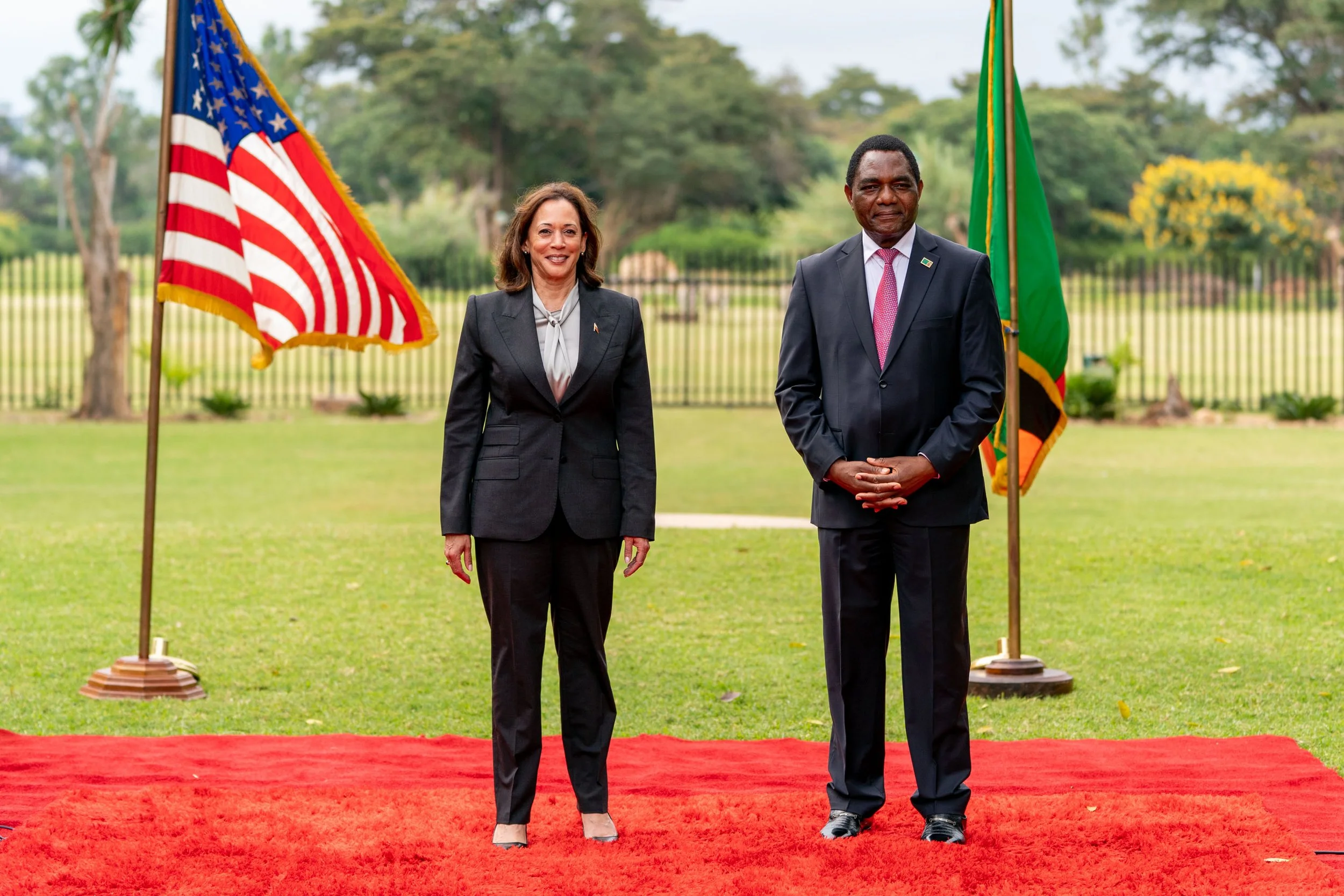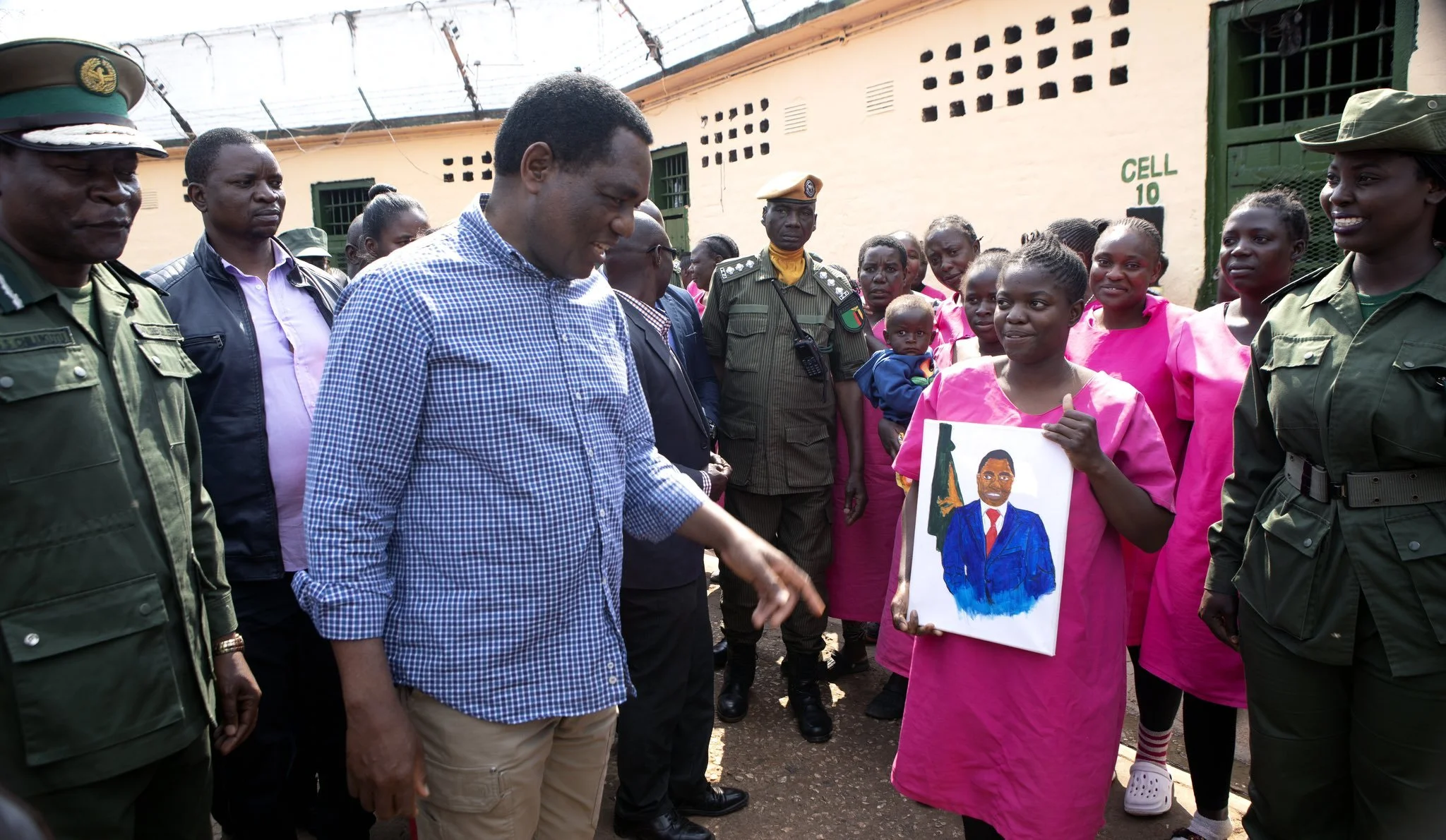Halfway through HH’s presidency, Zambia’s future looks brighter than ever
Having passed the halfway point of his first term, President Hakainde Hichilema has already delivered a great deal of positive change for Zambia.
His leadership has brought tangible progress in empowering local communities - most notably through his Education for All scheme and the successful expansion of the Constituency Development Fund (CDF) – as well as making great strides in strengthening the economy by increasing investor confidence and working towards a debt restructuring agreement. His achievements mark a pivotal moment for Zambia, where democracy, economic growth, and social progress intersect to create a bright future.
To mark this important milestone in HH’s presidency, Zambia Is Back counts down the president’s most impactful policies and reforms.
1. Delivering free education
Hichilema's pivotal achievement of free education to all citizens of schooling age has ushered in a transformative era for Zambia. Since 10 January 2022, when the UPND’s free education programme began, nearly 2.3 million children have had their access to education restored.
Hichilema’s unwavering commitment to education was reflected in the inaugural national budget, where a 10.4% allocation - the largest in five years - was earmarked for the sector. In 2023 the allocation rose to 13.9% in order to fortify the education system's foundation.
The government's initiatives extend beyond budget allocations. Grants for primary and secondary schools have doubled, accompanied by the recruitment of 30,000 teachers and plans for the construction of over 100 new secondary schools. This surge in educational infrastructure not only creates immediate employment opportunities but also promises an educated and well-balanced future workforce.
Hichilema's vision includes further reducing teacher-to-student ratios in the coming years, so that every child will get the academic attention they need. The administration is well on its way to providing a desk for each child. This feat has been made possible through the substantial expansion of the Constituency Development Fund (CDF), enabling educational equity across the provinces.
With so many children now able to access a full education, Hichilema's presidency signifies a watershed moment in Zambia's educational landscape. Access to quality education is no longer a privilege but a fundamental right for all citizens, and the groundwork is laid for a more prosperous and equal society.
2. Boosting private sector investment
Hichilema is steering economic recovery by restoring the confidence of business and industry in Zambia and thereby encouraging investment in the country. In the period since he took office, international investment has risen from $3.31 billion to at least $37 billion.
A key area of investor confidence is mining: with a goal to treble the country’s copper output by three million tonnes per year by 2032, Hichilema is working to cement Zambia’s position as a major player in the global mining industry. The country has some of the highest-grade copper in the world, and the metal is key to the green energy transition.
Earlier this month, US-based mineral exploration company KoBold Metals found the largest copper deposit the country has seen in a century at its Mingomba site and intends to expedite its $2 billion investment. Hichilema has also struck a deal with Canadian-based First Quantum Minerals (FQM) in the form of a $1.25 billion investment in the expansion of its Kansanshi mine, and a further $100 million to complete the Enterprise nickel mine, which will be one of the largest nickel mines in the world. Meanwhile, Barrick Gold has fast-tracked its $2 billion expansion of Lumwana copper mine.
Investments are creating thousands of jobs for Zambians: since August 2021 over 20,000 jobs have been actualised and a further 112,000 have been committed. The expansion of Kansanshi mine alone will create another 1,800 jobs this year.
Hichilema has also been successful in encouraging foreign investment in the renewable energy sector, commitments to which have increased eightfold from $2 billion in 2021 to $16.1 billion in 2023. This is succeeding in propelling Zambia to the forefront of the green energy transition. Recent developments in this area include the partnership Hichilema agreed with the British government covering clean energy and critical mineral supply worth more than $3.7 billion. Green investment is also enabling the diversification of Zambia’s own energy sources, such as the recently announced project by German-owned 7YRDS to build two large solar projects.
The president’s unwavering dedication to Zambia's economic revival is evident through his strategic approach to foreign investment. Under his leadership, the private sector is experiencing unprecedented growth, fuelling job creation and working towards economic prosperity.
3. Empowering communities through CDF
President Hichilema’s administration has taken a groundbreaking step towards regional development and community empowerment through the significant expansion of the Constituency Development Fund (CDF) in the 2022 budget. Allocated funds have increased from just K1.6 million in former President Edgar Lungu’s budget to a substantial K25.7 million in Hichilema’s first budget and a further K28.3 million in his second.
This large increase gives greater power to communities to foster grassroots change. The new approach grants autonomy to each constituency, allowing it to directly address its most pressing needs in areas such as healthcare, education, vocational training, infrastructure, waste management, and agriculture. It is through investment in local communities that Zambians will gain skills and support to explore their careers and contribute to the economy.
The CDF is delivering lifechanging infrastructure development, such as at Chipata level-one hospital in Lusaka, where CDF funding has increased staff levels and provided up-to-date equipment, improving the quality of medical care for citizens.
This bottom-up approach to development promises to actively address issues of corruption and lack of investment in rural Zambia, fostering a more inclusive and prosperous nation. In essence, the expanded CDF signifies a shift towards people-powered progress, putting the tools for economic advancement directly in the hands of those who need it most.
4. Strengthening democracy and tackling corruption
During his tenure so far, Hichilema has strengthened Zambian democracy by encouraging freedom of expression, legislating for government transparency, and clamping down on corruption.
Hichilema has achieved a significant breakthrough for media freedom in Zambia by enacting the long-awaited Access to Information (ATI) Act after years of unfulfilled promises from previous administrations. The act enables citizens to request information from public bodies, ensuring that government processes are open and accessible to all - including those who are unable to read.
This achievement stands as a stark departure from the oppressive environment cultivated under the previous administration of President Lungu. The closure of The Post, a vital independent newspaper, served as a glaring example of the suppression tactics employed by his government. However, in 2022, a court deemed the closure illegal, and Hichilema's administration went further by repealing the law criminalising defamation of the president. Removing this act from the statute books, alongside scrapping the death penalty and plans to reform the Public Order Act, signifies a new era for freedom of expression and assembly in Zambia.
Hichilema’s dedication to transparency extends beyond the realm of media freedom. He has bolstered institutions such as the Financial Intelligence Unit (FIU) and Anti-Corruption Commission (ACC), underscoring his determination to combat corruption and uphold principles of fair governance.
Recently, Hichilema has overseen the sentencing of the former Deputy Inspector General, Charity Katanga, to three years in prison for purchasing property with illegal funds. In a country where state capture has been the modus operandi of previous presidents, Hichilema’s government is showing that corruption has no place in modern Zambia.
The UPND government represents a turning point in Zambia's trajectory, where the fundamental rights of citizens are safeguarded, and government accountability is prioritised. Through legislative reforms, the president has demonstrated his unwavering belief in the principles of democracy and freedom of expression for all, irrespective of political affiliations.
5. Restructuring historic debts
Since taking office, President Hichilema has been working tirelessly to complete the mammoth task of restructuring Zambia’s $13 billion external debt: a weighty burden he had inherited from his predecessor. In a very positive recent development, Hichilema announced on 26 February that China and India – the last two countries that had been yet to sign as official creditors – have signed agreements to restructure their holdings of the debt.
This is very welcome news and follows several months of protected wrangling between official and private creditors. In 2022, Hichilema managed to secure a provisional deal with official creditors for $6.3 billion and a separate deal with private bondholders for $3 billion, both incredible feats of negotiation which would greatly ease the country’s financial burdens. However, progress has slowed down after official creditors complained that their terms were not as favourable as those received by private lenders.
Nevertheless, things are moving in the right direction. Finance Minister Situmbeko Musokotwane expressed optimism in February that the restructuring would be completed in the first half of this year.
Hichilema is walking through uncharted territory, fixing the corruption and carelessness of his predecessors. Although the debt restructuring is still ongoing, the current outlook looks positive, with strides taken to get Zambia back on track and bring economic stability to the nation.




